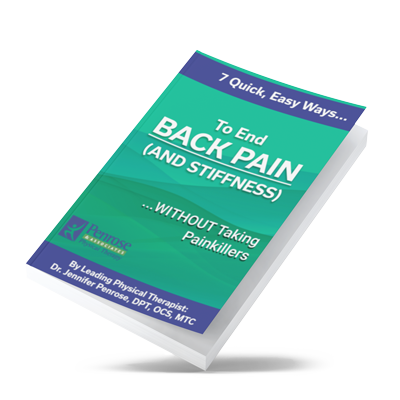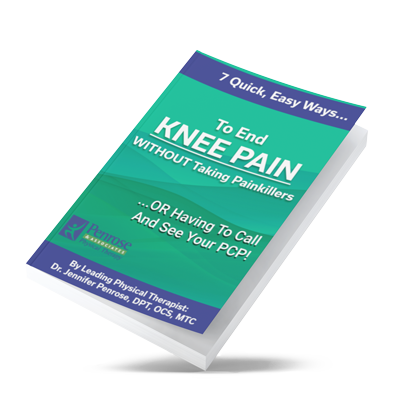As we age, maintaining balance and a steady gait can become increasingly challenging. This can lead to a fear of falling, reduced mobility, and a decline in overall independence. Fortunately, physical therapy can play a crucial role in helping older adults improve their balance, gait, and confidence.
Why is Balance and Gait Important for Older Adults?
As we age, our bodies naturally undergo changes that can impact our balance and gait. While these changes are a normal part of the aging process, they can significantly affect our daily lives and overall well-being. Here’s why maintaining good balance and gait is crucial for older adults:
Preventing Falls: Falls are the leading cause of injury and hospitalization among older adults, often resulting in serious consequences like fractures, head injuries, and even loss of independence. Reduced balance and gait stability significantly increase the risk of falling. Physical therapy can help improve these aspects, significantly lowering the fall risk and its potential consequences.
Enhancing Mobility and Independence: Good balance and a steady gait allow older individuals to move freely and safely within their homes and communities. This enables them to perform daily activities like dressing, bathing, shopping, and preparing meals independently without relying on assistance. Maintaining independence translates to improved quality of life, allowing older adults to participate in activities they enjoy and maintain a sense of control over their lives.
Boosting Confidence and Well-being: The ability to move confidently can significantly increase self-esteem and self-reliance. Fear of falling can be debilitating, impacting mental well-being and limiting participation in various activities. Improved balance and gait can reduce this fear, fostering a sense of security and promoting greater engagement with life.
How Can Physical Therapy Help?
As we saw, maintaining good balance and gait is crucial for older adults to prevent falls, stay independent, and experience a higher quality of life. Fortunately, physical therapy can play a significant role in addressing balance and gait impairments, empowering older adults to move with greater confidence and stability.
Tailored Treatment Plans
Physical therapists are movement experts who conduct thorough assessments to identify the specific factors contributing to balance and gait difficulties in older adults. Based on this evaluation, they design personalized treatment plans that may incorporate various elements:
- Balance training exercises: These exercises challenge the vestibular system (inner ear) and proprioception (body awareness) to improve postural control and stability. Examples include single-leg stance exercises, walking on uneven surfaces, and tai chi.
- Strength training: Strengthening exercises, particularly those targeting core muscles (abdominal and back muscles), legs, and hips, can improve stability and support proper alignment.
- Gait training: This involves practicing walking patterns with various speeds, step lengths, and over different terrains to improve walking efficiency and coordination.
- Flexibility exercises: Maintaining good flexibility in the ankles, knees, and hips can enhance range of motion and contribute to better balance and gait.
Beyond Physical Improvement
Physical therapy goes beyond simply improving physical capabilities. Therapists also educate older adults about:
- Fall prevention strategies: This includes learning how to identify and reduce fall risks in their environment, such as removing tripping hazards and installing grab bars.
- Proper footwear selection: Choosing shoes with good support and traction can significantly enhance stability and prevent falls.
- Modifying their environment: Making small adjustments at home, like improving lighting or using assistive devices, can promote safety and independence.
Additional Benefits
While improving balance and gait are undoubtedly crucial for older adults, physical therapy offers a multitude of additional benefits that contribute to their overall well-being and quality of life. Here are some key advantages to consider:
1. Pain Management
Chronic pain conditions like arthritis, muscle tension, and joint pain can significantly limit mobility and hinder daily activities. Physical therapy incorporates various treatment approaches, including manual therapy, therapeutic exercises, and modalities like ultrasound or electrical stimulation, to effectively manage pain and improve joint function. This allows older adults to participate in activities they enjoy with greater comfort and ease.
2. Improved Endurance and Stamina
Regular physical activity is essential for maintaining cardiovascular health and preventing age-related decline in stamina. Physical therapists design exercise programs tailored to individual fitness levels and gradually increase intensity and duration to improve endurance. This not only enhances the ability to perform daily tasks but also allows older adults to engage in leisure activities and social outings for longer periods.
3. Reduced Fear of Falling
The fear of falling can be a significant obstacle for older adults, leading them to avoid certain activities and limiting their independence. Physical therapy addresses this fear by improving balance, gait, and overall strength. As individuals gain confidence in their movement abilities, the fear of falling diminishes, allowing them to participate more actively in life and experience a greater sense of freedom.
4. Enhanced Cognitive Function
Emerging research suggests a positive link between physical activity and cognitive function in older adults. Physical therapy programs that incorporate exercises and activities that challenge coordination, balance, and problem-solving can stimulate cognitive function and potentially help reduce the risk of dementia or Alzheimer’s disease.
5. Improved Mental Health and Well-being
Physical activity is a well-established mood booster and can significantly impact mental well-being. Engaging in physical therapy not only improves physical capabilities but also promotes the release of endorphins, natural mood elevators that combat feelings of depression and anxiety. Additionally, the social interaction and support offered during physical therapy sessions can help alleviate loneliness and foster a sense of connection, further contributing to improved mental well-being.
6. Fall Prevention Strategies
Physical therapists are experts in fall prevention. They conduct comprehensive evaluations to identify potential risk factors in an individual’s home environment and provide personalized recommendations for modifications. This may involve installing grab bars, improving lighting, removing tripping hazards, or suggesting the use of assistive devices like canes or walkers. By implementing these strategies, older adults can significantly reduce their fall risk and maintain their independence for longer.
Taking the First Step
If you or a loved one are experiencing balance or gait difficulties, pain, limited mobility, or any other challenges impacting your daily life, don’t hesitate to take the first step towards a more fulfilling future. At Penrose Physical Therapy, located in Lacey, WA, our dedicated team of physical therapists is passionate about helping older adults regain their strength, confidence, and independence.
Contact Penrose Physical Therapy today at 360-456-1444] to schedule a consultation and discuss how we can help you achieve your goals.






